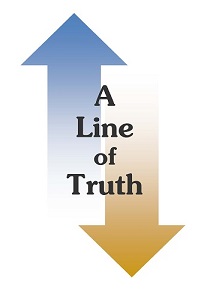Elijah and the Use of the Sword
Taken from the Booklet The Ministration of Death
This process of the use of the sword is also seen in the ministry of Elijah.
1 Kings 18:40 And Elijah said unto them, Take the prophets of Baal; let not one of them escape. And they took them: and Elijah brought them down to the brook Kishon, and slew them there.
Again the voice of Elijah is heard in startling words of command to the people: "Take the prophets of Baal; let not one of them escape." The people are ready to obey his word. They seize the false prophets [286] who have deluded them, and bring them to the brook Kishon, and there, with his own hand, Elijah slays these idolatrous priests. 3T 285.1
The judgments of God having been executed upon the false priests, the people having confessed their sins and acknowledged their fathers' God, the withering curse of God is now to be withdrawn, and He is to renew His blessings unto His people and again refresh the earth with dew and rain. {3T 286.1}
We are told that the judgments of God were executed on the false priests. What more do we learn? -
God wrought through Elijah when He destroyed the prophets of Baal which kindled the fires of hell in the heart of Jezebel to avenge the blood of the priests of Baal. Such a triumph had been gained to the God of Israel, that it stirred up the powers of darkness, and she resolves, yes swears by her gods that Elijah shall die, but she does not consider there is a God who is above her, who will only permit the agent of Satan to work out her own ruin. 1888 488.1
Notice it says that God wrought through Elijah when he destroyed the prophets of Baal. Did the actions of Elijah reflect the character of God’s kingdom? To answer this question we discover something very interesting in the life of John the Baptist who came in the power and spirit of Elijah:
Matt 11:2-3 Now when John had heard in the prison the works of Christ, he sent two of his disciples, (3) And said unto him, Art thou he that should come, or do we look for another?
Why did John, the greatest of the prophets, have a crisis of faith?
Like the Saviour's disciples, John the Baptist did not understand the nature of Christ's kingdom. He expected Jesus to take the throne of David; and as time passed, and the Saviour made no claim to kingly authority, John became perplexed and troubled. He had declared to the people that in order for the way to be prepared before the Lord, the prophecy of Isaiah must be fulfilled; the mountains and hills must be brought low, the crooked made straight, and the rough places plain. He had looked for the high places of human pride and power to be cast down. He had pointed to the Messiah as the One whose fan was in His hand, and who would thoroughly purge His floor, who would gather the wheat into His garner, and burn up the chaff with unquenchable fire. Like the prophet Elijah, in whose spirit and power he had come to Israel, he looked for the Lord to reveal Himself as a God that answereth by fire. {DA 215.2}
Neither John the Baptist, the disciples of Christ or Elijah understood the nature of Christ’s kingdom. Is this a surprise to us? Notice what we are told of the angels:
The heavenly intelligences were prepared for a fearful manifestation of almighty power. Every move was watched with intense anxiety. The exercise of justice was expected. The angels looked for God to punish the inhabitants of the earth. But God said, I will send My Son. Perhaps they will reverence Him. “God so loved the world, that he gave his only begotten Son, that whosoever believeth in him should not perish, but have everlasting life.” Amazing grace! Christ came not to condemn the world, but to save the world. “Herein is love, not that we loved God, but that he loved us, and sent his Son to be the propitiation for our sins.” Ms166-1898.27
So even the angels before the time of Christ’s first advent did not understand fully the character of God. If this is true of angels then what can we say of men? Returning to Elijah we ask the question, when did Elijah first begin to comprehend the nature of God’s kingdom?
To John was opened the same truth that had come to Elijah in the desert, when "a great and strong wind rent the mountains, and brake in pieces the rocks before the Lord; but the Lord was not in the wind: and after the wind an earthquake; but the Lord was not in the earthquake: and after the earthquake a fire; but the Lord was not in the fire:" and after the fire, God spoke to the prophet by "a still small voice." 1 Kings 19:11, 12. So Jesus was to do His work, not with the clash of arms and the overturning of thrones and kingdoms, but through speaking to the hearts of men by a life of mercy and self-sacrifice. DA 217.2
So it was not until after the Mt Carmel incident that Elijah began to understand that God was not in the fire. Even so after this event did Elijah fall back into his old understanding?
2 Kings 1:10 And Elijah answered and said to the captain of fifty, If I be a man of God, then let fire come down from heaven, and consume thee and thy fifty. And there came down fire from heaven, and consumed him and his fifty.
This event happened after Elijah ran away to Mt Sinai and was shown that God is not in the fire. Jesus Himself tells us that Elijah was not representing the kingdom of God when he called down this fire on those men.
Luke 9:54-56 And when his disciples James and John saw this, they said, Lord, wilt thou that we command fire to come down from heaven, and consume them, even as Elias did? (55) But he turned, and rebuked them, and said, Ye know not what manner of spirit ye are of. (56) For the Son of man is not come to destroy men's lives, but to save them. And they went to another village.
God wrought through Elijah for the destruction of the prophets of Baal but He punished the sin of the prophets of Baal with the sin of Elijah in the use of the sword.
When parents or rulers neglect the duty of punishing iniquity, God Himself will take the case in hand. His restraining power will be in a measure removed from the agencies of evil, so that a train of circumstances will arise which will punish sin with sin. PP 728.1
Ahab should not have allowed the prophets of Baal to prosper, so God allowed a series of circumstances to unfold that would punish sin with sin. Now remember that because John the Baptist misunderstood the kingdom of God he had a crisis of faith. The same thing happened to Elijah. After the Mt Carmel experience he expected a reformation to immediately take place and it did not because the actions of Elijah were not representative of the kingdom of heaven.
What did Elijah see? Did he see by faith the promises of God? Did he recount his faithfulness in every past emergency? No, the dark shadow of Satan in his agent Jezebel was athwart his pathway, threatening him with cruel death. He did not look through the shadow heavenward. Human terror amazed, and paralysed his mind, and he was so terribly disappointed on Israel's account that he arose and went for his life, in disappointment and sorrow bending [489] his uncertain steps, he knew not whither. {1888 488.3}
A little before, in the strength of the power of God, he was full of zeal and intensity of interest for apostate Israel, running before or at the side of the chariot of Ahab. He was to vindicate the glory of God. He was to challenge apostate Israel either to serve God fully or Baal fully. But now the man seems as weak as other men. There was no particular word he had heard from the Lord, directing him to take the course he had taken, and there was no purpose to his steps. Distracted by doubts and uncertain whither his way was tending, he pushed this way and that for his life, but God did not forget Elijah. He wrought for His servant, He inquired of him, "What doest thou here Elijah?" 1888 489.1
This history carefully and prayerfully studied will be a help to the people of God under difficulties. Let man be careful not to assume responsibilities that God does not require of him, and interpose himself between the Lord and His tempted and tried ones so that the purposes of God shall not be carried out in the experiences of these persons. 1888 489.2
Elijah’s doubt and confusion came because he misunderstood the kingdom of God. As Ellen White stated:
To John was opened the same truth that had come to Elijah in the desert, when "a great and strong wind rent the mountains, and brake in pieces the rocks before the Lord; DA 217.2
It was only after Mt Carmel he began to understand the nature of the kingdom of God. Elijah has assumed responsibilities not given to him and it caused him disappointment and failure. Yet we remember that “God wrought through Elijah when He destroyed the prophets of Baal.” So how did God work through Elijah in this situation? Notice the following statement:
The priests of Baal witness with consternation the wonderful revelation of Jehovah's power. Yet even in their [154] discomfiture and in the presence of divine glory, they refuse to repent of their evil-doing. They would still remain the prophets of Baal. Thus they showed themselves ripe for destruction. That repentant Israel may be protected from the allurements of those who have taught them to worship Baal, Elijah is directed by the Lord to destroy these false teachers. PK 153,154
In the command of God we find the ministration of death. God pronounces the sentence of death for the prophets of Baal. As we have learned, the intention of this sentence is to encourage those sentenced to seek for mercy. The refusal to seek for mercy only comes from a wrong conception of God by those sentenced and therefore they bring judgment on themselves when the Lord withdraws from them. We see in the story of Moses what happened when God pronounced sentence against Israel:
Exo 32:10 Now therefore let me alone, that my wrath may wax hot against them, and that I may consume them: and I will make of thee a great nation.
This command is a test for Moses and how does Moses respond?
Exo 32:11 And Moses besought the LORD his God, and said, LORD, why doth thy wrath wax hot against thy people, which thou hast brought forth out of the land of Egypt with great power, and with a mighty hand?
Moses pleads for the people when God indicates that He will consume them. Why didn’t Moses simply accept the command? Why would he dare to appeal against the judgment of God? What is interesting is that when God said He would consume Israel, Moses asks for mercy but when He is given the sentence to destroy a little later he moves ahead with the sentence.
Exo 32:27 And he said unto them, Thus saith the LORD God of Israel, Put every man his sword by his side, and go in and out from gate to gate throughout the camp, and slay every man his brother, and every man his companion, and every man his neighbour.
When the Lord issued the command to slay the prophets of Baal was He inviting Elijah to intercede for mercy for these men? Was He also seeking to bring forth from Elijah his inner feelings towards these men?
1Ki 19:10 And he said, I have been very jealous for the LORD God of hosts: for the children of Israel have forsaken thy covenant, thrown down thine altars, and slain thy prophets with the sword; and I, even I only, am left; and they seek my life, to take it away.
Was it possible that Elijah felt deeply about the fact that his friends were killed by these prophets of Baal? Had he been afraid and discouraged because they tried to take his life? Did the fire coming down from heaven appear to justify the action of killing these men with the sword? When the sentence of death was given by God, did Elijah take responsibilities upon himself that he was not given and did he reveal his deeper feelings of negativity towards these prophets that were hidden inside him? Did the command to slay the prophets of Baal magnify the sin inside Elijah of a possible motive of revenge for the slaying of the prophets of God and destroying the nation with idolatry?
James 5:17 Elias was a man subject to like passions as we are, and he prayed earnestly that it might not rain: and it rained not on the earth by the space of three years and six months.
If Elijah was subject to like passions as we are could he have been tempted to seek revenge for the killings of God’s people and possibly those who were his good friends? Would you be tempted with revenge if a close friend of yours was killed, especially if you didn’t understand the nature of God’s kingdom?
Elijah was instructed to slay the prophets of Baal because this was the ministration of death and a fulfilment of the Old Covenant process. Elijah was not instructed to slay the prophets of Baal with the sword but God wrought through these actions to punish Israel as well as to confront him with his own deeper feelings that were not in harmony with the law of God.
Secondly there is no command in the Torah to use the sword to execute justice on the guilty. The sentence of death for those worshipping a false god was to be stoned to death.
Deu 13:6-10 If thy brother, the son of thy mother, or thy son, or thy daughter, or the wife of thy bosom, or thy friend, which is as thine own soul, entice thee secretly, saying, Let us go and serve other gods, which thou hast not known, thou, nor thy fathers; (7) Namely, of the gods of the people which are round about you, nigh unto thee, or far off from thee, from the one end of the earth even unto the other end of the earth; (8) Thou shalt not consent unto him, nor hearken unto him; neither shall thine eye pity him, neither shalt thou spare, neither shalt thou conceal him: (9) But thou shalt surely kill him; thine hand shall be first upon him to put him to death, and afterwards the hand of all the people. (10) And thou shalt stone him with stones, that he die; because he hath sought to thrust thee away from the LORD thy God, which brought thee out of the land of Egypt, from the house of bondage.
What Elijah did was contrary to the Torah in regard to how to deal with idolatry. What Elijah appealed to was tradition, the tradition of Israel to use the sword. In the woman caught in adultery we see how the Law giver intended this sentence of death to be applied. It was to give mercy to the repentant.
The Old Covenant sentence punished the sin of the prophets of Baal with the sin of Israel’s use of the sword and at the same time brought Elijah to realise his own deeper feelings. How else do we explain the sudden fear of Elijah in the face of Jezebel? This failure on his part reveals that Satan had been allowed access to him in some way? How else is it possible to reconcile Elijah’s use of the sword with the words of Jesus?
Matt 26:52 Then said Jesus unto him, Put up again thy sword into his place: for all they that take the sword shall perish with the sword.
The character of Jesus reveals that He would not use the physical sword and when Peter used it, He healed the man who was struck and rebuked Peter. The place Jesus wanted Peter to put the sword was out of his hand. He wanted Peter to be like Himself who never used a physical sword at any time.





